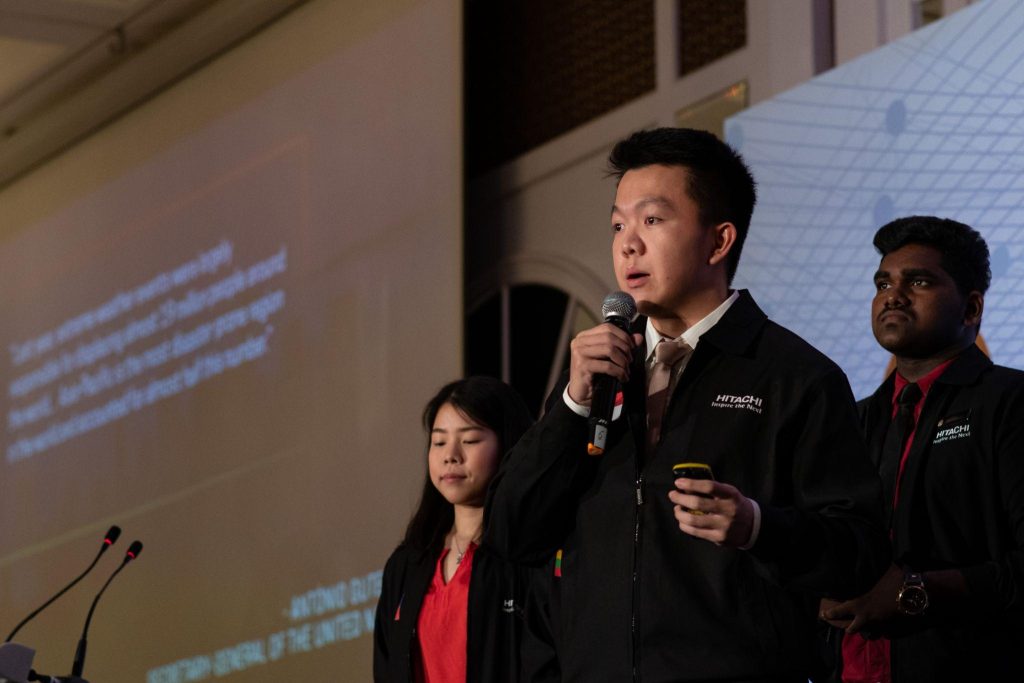Christophe Andre Agung Lawin
Background
Graduating from the Institut Teknologi Bandung with a bachelor’s degree in 2019 and National Taiwan University with a master’s degree in 2021, Gelasius Galvindy now works as a Project Manager for K2 Management based in the Taipei area.
The Importance of a Foundation
To succeed in anything it is important to lay the appropriate groundwork and make sufficient preparations, similar to building houses where the most important part is to build a strong foundation for which the rest of the house will be built. Without this strong foundation, the rest of the house will eventually topple and fall, rendering all of your hard work useless. Of course, some people with imperfect foundations still succeed, but choosing to leave your foundation unfinished is an unnecessary risk. It is, as they say, ‘better to have and not need than to need and not have.”
Out of all the soft skills that Gelasius has under his belt, he believes that his exceptional ability to manage his time properly has been instrumental in his success, both in his academic performance as well as his work endeavors. He applies PDCA, a self-coined acronym short for Plan, Do, Check, Act which allows him to go through the day productively. This tried and true method ensures that he gets anything and everything done with time to spare – all without cutting any corners. The secret lies not in some incredibly creative hack that fixes all his problems at once, but in something much simpler – consistency. Every day Gelasius checks a list to see what he needs to do for the day – one part of the list is updated every day and contains manageable tasks that can be done within a day’s time, and the second part of the list is updated every week and contains longer-term tasks that he takes on for multiple days. He makes sure that both daily and weekly goals are specific, measurable, attainable, relevant, and time-bound. Gelasius consistently updates his lists day in and day out, trying his hardest to not miss a day. Even in the most dire of scenarios, he still finds a way to be productive on any given day. But he does not hold himself to an impossible standard, especially when external factors such as sickness or emergencies arise unexpectedly.
Discipline, however, is not synonymous with inflexibility and rigidity. Although they share common traits in many situations such as not being able to stay out late on certain days or needing to turn down plans in favor of getting important work done, it is imperative to remember the reason why you are doing this in the first place. That reason should be for yourself and no one else. Yes, it is important to not procrastinate and to get your work done on time, but that does not mean isolating yourself from friends and family to continuously obsess over school or work. There is no need to sacrifice relationships and health to stick to a predetermined regimen every day, as there wouldn’t even be a net positive from it.
For Gelasius, his objective is to balance three things that he deems important in his life – his health, his hobbies, and of course his career. He makes sure to set aside time every week to go to the gym and play the piano, saying that without those two things, he would not be able to destress from the stress of studying. But he isn’t perfect, and there are times when he ends up falling behind in some of these categories. Yet he does not give up, and instead reflects on his productivity throughout the week to decide for the next day if he should make any changes to his lists. He’s flexible and understanding, all because he has a clear final goal in mind.
Staying Motivated
This brings us to Gelasius’s second key to success: having a goal in mind. A person can only go so long and do so much before they run out of their initial motivation. Although it is a normal occurrence for humans to get bored, the way to circumvent this problem is to remind yourself of the reason that you are working hard in the first place. Without that reminder for motivation, most people would fizzle out, unable to continue.
Gelasius had already chosen his path coming out of high school – he had an interest in structural engineering, particularly regarding how certain structures in buildings made the seemingly impossible possible. For example, how the tallest buildings in the world such as the Burj Khalifa and Taipei 101 might have been able to stand as tall as they are while still being safe. With the goal of one day working as a structural engineer in mind, he was able to continuously motivate himself to persevere in his classes. Because of his strong foundations and habits, he was able to stay on top of all of his responsibilities without neglecting the other parts of his life.

Gelasius competing in a powerlifting competition
The Next Step
After you’ve received your degree and it finally comes time to get a job, Gelasius heavily emphasizes how crucial it is to stay flexible with your options in accordance to the global trend and not force yourself into a box of your own making, specifically referring to the classes that you’ve taken in university. Gelasius started with structural design but was able to pivot into renewable energy while still being able to apply the skills that he had learned from university as well as his previous jobs. Gelasius himself follows the idea of self-improvement – no matter the position that you are in, whether it is high or low, there is always room to learn more, room to improve, and room to change.

Gelasius acting as a spokesman atHitachi Young Leaders Initiative 2019




